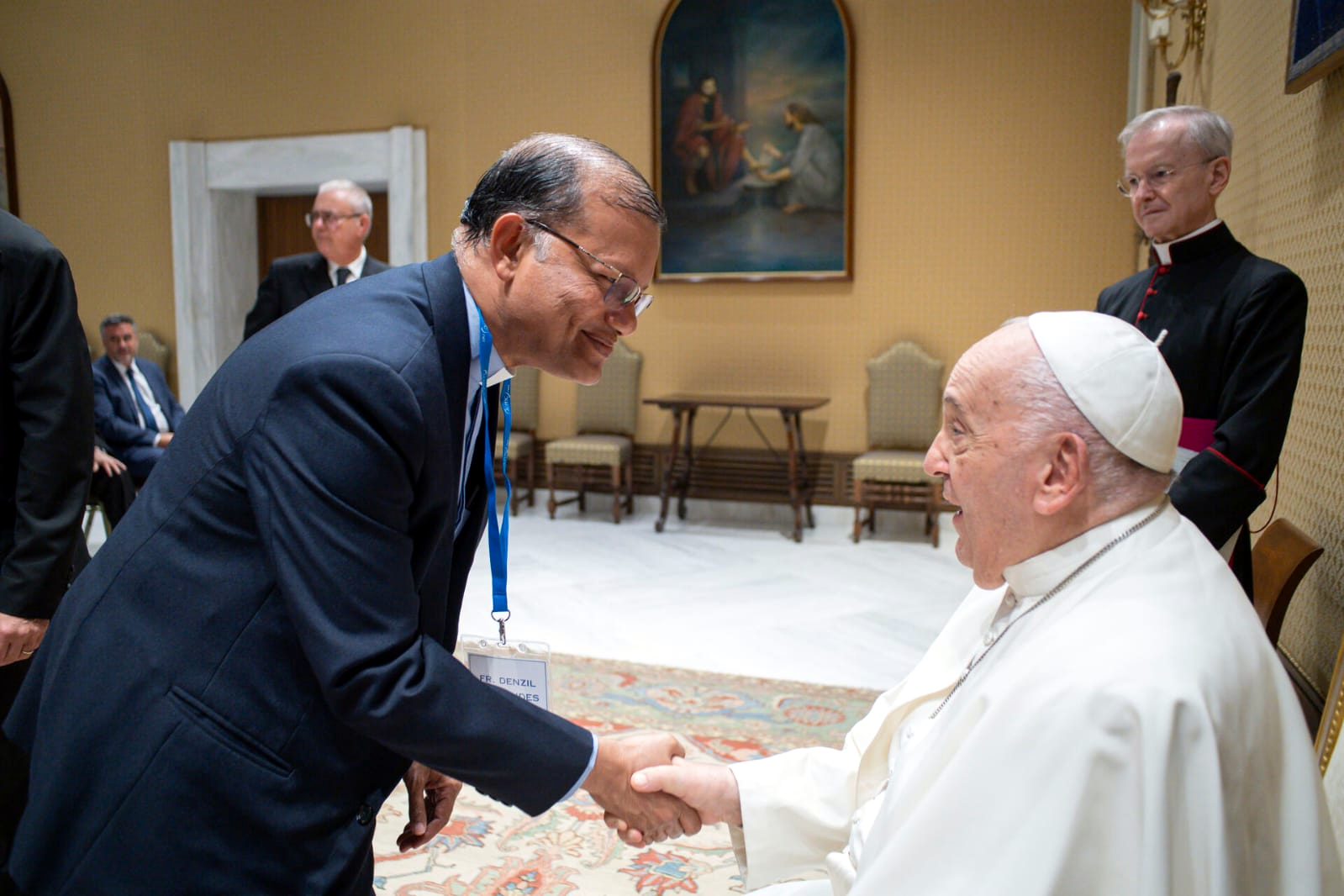
BANGALORE
It has been a rare privilege for me to be a Jesuit priest of the Goa Province during the 12-year tenure of the papacy of His Holiness Pope Francis, the first Jesuit Pope in the history of the Church. I consider myself very fortunate to have had the grace of meeting Pope Francis twice.
I had the opportunity to meet Pope Francis for the first time on November 7, 2019, during a private audience in the Vatican along with the delegates of the Golden Jubilee Conference of the Social Justice and Ecology Secretariat of the Society of Jesus.
Over 200 delegates from across the globe, largely Jesuits and their collaborators, engaged in promoting social justice to migrants, refugees and marginalised communities were inspired by Pope Francis meeting with us and encouraging us to continue working for people on the peripheries of society and for the Care of our Common Home.
I met him the second time last year on May 8, 2024, again in the Vatican at a private audience with about 60 delegates of the International Consultation on “Care is Work, Work is Care: Building a Global Transformative Community and Contributing to the Global Development Agenda”.
Though the audience was scheduled at 8 am, he arrived early at 7.45 am walking slowly with the help of a walking stick, which gave a glimpse of his hectic schedule of meetings he maintained during the day at the age of 87.
In his address, he encouraged the team of the project “Future of Work after Laudato Si”, of which I was a part, to “engage in reflection, dialogue and research, proposing innovative models of action for fair, just and dignified work for all people in our world”.
He appreciated the five thematic areas that I had worked on namely, dignified work and mining, food security, migration, social justice and just ecological transition.
He expressed his concern about pollution and environmental impact of mining, the high levels of acute food insecurity, the famine-like situation in war-torn areas of Gaza and Sudan, the increasing vulnerability of people due to natural disasters and extreme weather conditions due to climate change, the suffering of migrants and refugees who are forced to flee their places of origin due to poverty and violence, growing social inequalities and injustice in labour relations and fundamental rights of workers, and the need for a just ecological transition recognising the interdependence between work and the environment.
His mere presence electrified all of us who were frantically trying to soak in every moment of this precious occasion.
During my brief interaction with Pope Francis, he was very excited to know that I was a Jesuit from Goa, and he shook his hands with the warmth of fatherly affection, while offering me a gift of a rosary in a bright red case bearing the insignia of the Papal coat of arms “miserando et eligendo”.
I never realised that he would return to the Lord within a year of this last meeting, but I will always treasure these moments with him in my heart.
[The writer hails from Divar and is Head of Peace and Reconciliation Unit at the Indian Social Institute, Bangalore.]